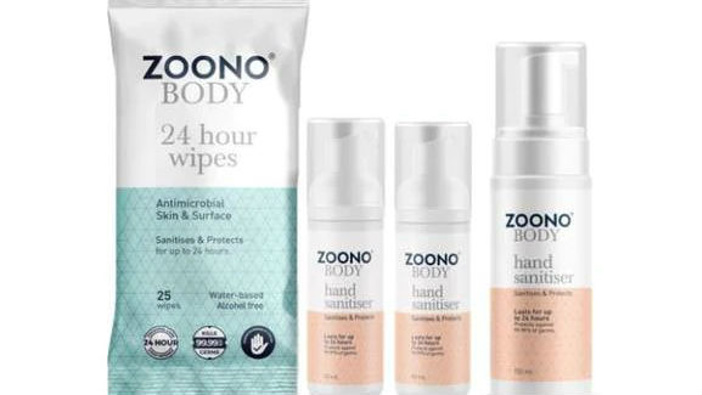Follow
the podcast on

The share price of Kiwi hand sanitiser company Zoono has soared more than 200 per cent following the coronavirus outbreak spreading throughout the world.
Zoono says the virus, which first broke out in Wuhan, China, has seen a steep spike in sales of its sanitiser product in the last week.
The company released an announcement to the Australian Stock Exchange confirming its product had been tested and proven to protect against Covid-19.
E-commerce sales of the $6 sanitiser had increased to $100,000 a day, up from about $20,000 per month, it said.
Zoono's sanitiser is made in Auckland and the company has a distribution agreement with Eagle Health Holdings Limited, which has ramped up its export volumes into its pharmaceutical facility in Xiamen, China, where the company is labelling the product and sending it out to more than 30,000 stores in that country.
The biotech company's sanitiser is said to use a process called lysis, which forms a protective barrier that kills pathogens on contact.
It was tested against bovine coronavirus in 2012, but had been retested to against the latest Covid-19 strain, the ASX announcement said.
On the same day of the announcement, its shares shot up by 17 per cent, and a further 19 per cent the following day. Over the past month the company's share price has increased by 250 per cent and last traded at A$2.25.
Sales of Zoono's product have soared this year. The company now has a tab on its online store called "Outbreak prevention", which takes the user through to its range of hand sanitisers, body wipes and a sanitiser surface spray.
In February, the company said its online sales were averaging between $30,000 and $50,000 per day and its cash resources had increased by more than 20 per cent to $4 million since the beginning of the year.
Zoono is now planning to move to a new warehouse and office facility, and is in the process of hiring more staff, to meet demand for its product.
Zoono is a tightly held stock, with Auckland-based Paul Hyslop controlling 51 per cent of the shares.
Hyslop has been involved in a number of businesses in New Zealand.
In 2000 he gained notoriety as "EF" in a Securities Commission (now FMA) case after he made $40,000 trading on insider information on Fletcher Challenge.
The Securities Commission ruled Hyslop, whom it dubbed EF, could not be prosecuted because he received the information third or fourth hand.
Separately, Hyslop was one of three of Wilson Neill directors fined a total $30,000 for Companies Act breaches in 2000.
Take your Radio, Podcasts and Music with you









